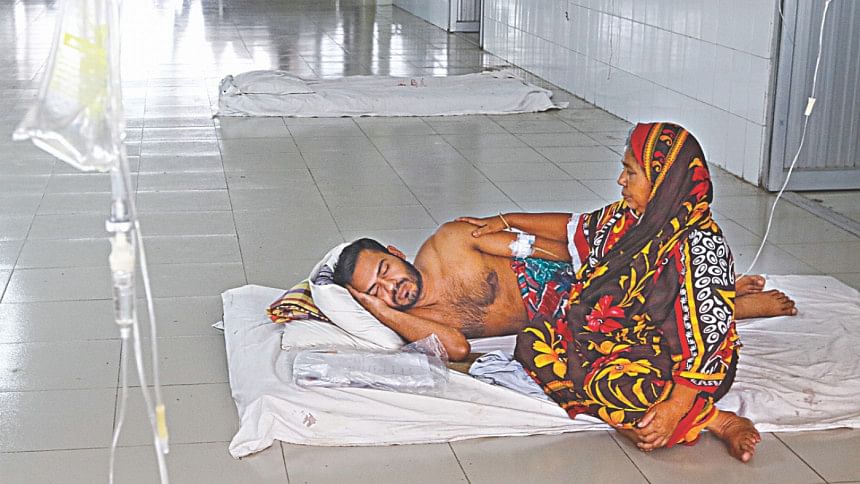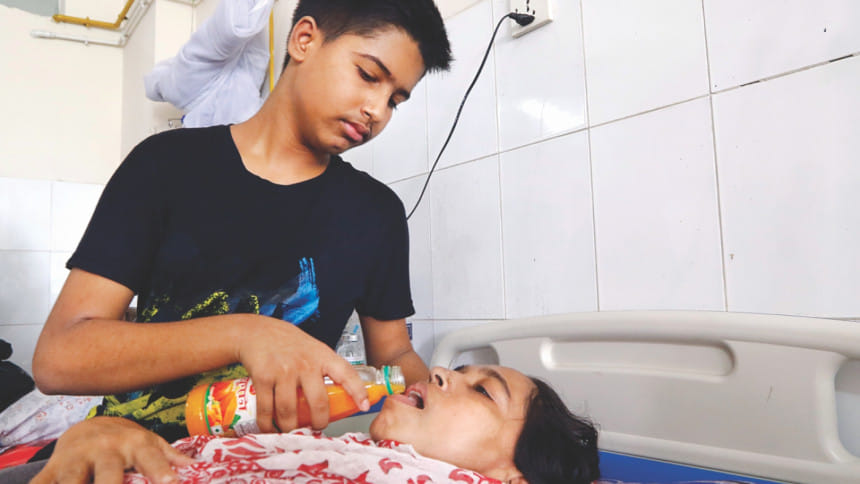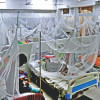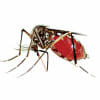No entomologist in city corporations

There is no entomologist at any of the 12 city corporations in the country although their job of carrying out research and preparing action plan is vital for controlling mosquito popula-tion.
On papers, the two Dhaka city corporations have two posts for entomologists, but they have been vacant for months.
But the city corporations in other cities do not even have the posts.
This is making the city corporations’ job of keeping mosquitos at bay very difficult, offi-cials said.

Amid the countrywide outbreak of the mos-quito-borne dengue, the Directorate General of Health Services (DGHS) is studying and sur-veying different species of the insect, especial-ly the Aedes.
But the department does not have adequate experts to do the job either.
The department’s posts for entomologist, as-sistant entomologist and entomological tech-nician have been vacant for three months to 25 years.
Entomologists study the characteristics of in-sects, their interactions with other species and their environment, the nature of their re-production, population dynamics and the dis-eases they spread.
While a record number of people are suffering from dengue across the country, the ento-mologists, through their research could have made recommendations to control the Aedes mosquito, which carries the virus causing the disease, said Prof Kabirul Bashar of entomolo-gy at Jahangirnagar University.
At the DGHS offices in the capital and else-where, 13 out of the 31 posts of entomolo-gists are now vacant. There are 29 entomolog-ical technicians against 59 posts across the country while one out of three posts for assis-tant entomologists are vacant.
Moreover, the DGHS have no such post in 40 districts.
The Institute of Epidemiology, Disease Control and Research (IEDCR) of the DGHS, which is researching vector-borne diseases, is also running with all four posts for entomologists vacant, officials said.
From 1996 to 1999, the DGHS appointed eight entomologists. Not a single entomologist has been hired since then. Between 2004 and 2008, the department appointed around 20 entomological technicians.
Around three months ago, the department promoted of 11 entomological technicians to the posts of entomologists although they are not qualified for the job, officials said.
Prof Kabirul said the technicians do not have a master’s degree on entomology and they lack the education and training required for the posts.
“A field technician may recognise the mosqui-to and larvae, but they will not be able to do the work of an entomologist,” he said.
A DGHS official, requesting anonymity, said the authorities concerned had never given much attention to the matter.
Prof Saniya Tahmina, line director of Com-municable Diseases Control, said as dengue has spread everywhere, entomologists are needed at her department, the city corpora-tions, and district civil surgeon offices.
“We are identifying the density of Aedes, Anopheles and Culex mosquitoes with our handful of scientists. We have been taking the help of zoology students from Jahangirnagar University,” she said.
Chief Entomologist Kholilur Rahman of the DGHS said it was not possible to contain the spread of dengue through treatment alone. It has been proven across the world that ento-mological research is needed to control vec-tor-borne diseases.
About the city corporations’ lack of such sci-entists, Mahbub Hossain, additional secretary (urban development wing) of Local Govern-ment Division, said, “Since the first outbreak of dengue in 2000, the disease has been un-der control. But now we have realised that the current approach to control mosquito will not work anymore.”
The officials will hold a meeting on August 29 when all city corporations will place their long-term plans and the ministry will provide them with the resources to implement those plans, he said.
Dhaka South City Corporation Mayor Sayeed Khokon said he has been planning to set up a separate wing for mosquito control.
“We will submit a proposal to the LGD by this month. Entomologists and other necessary experts will be incorporated in the wing,” he told The Daily Star.

 For all latest news, follow The Daily Star's Google News channel.
For all latest news, follow The Daily Star's Google News channel. 








Comments